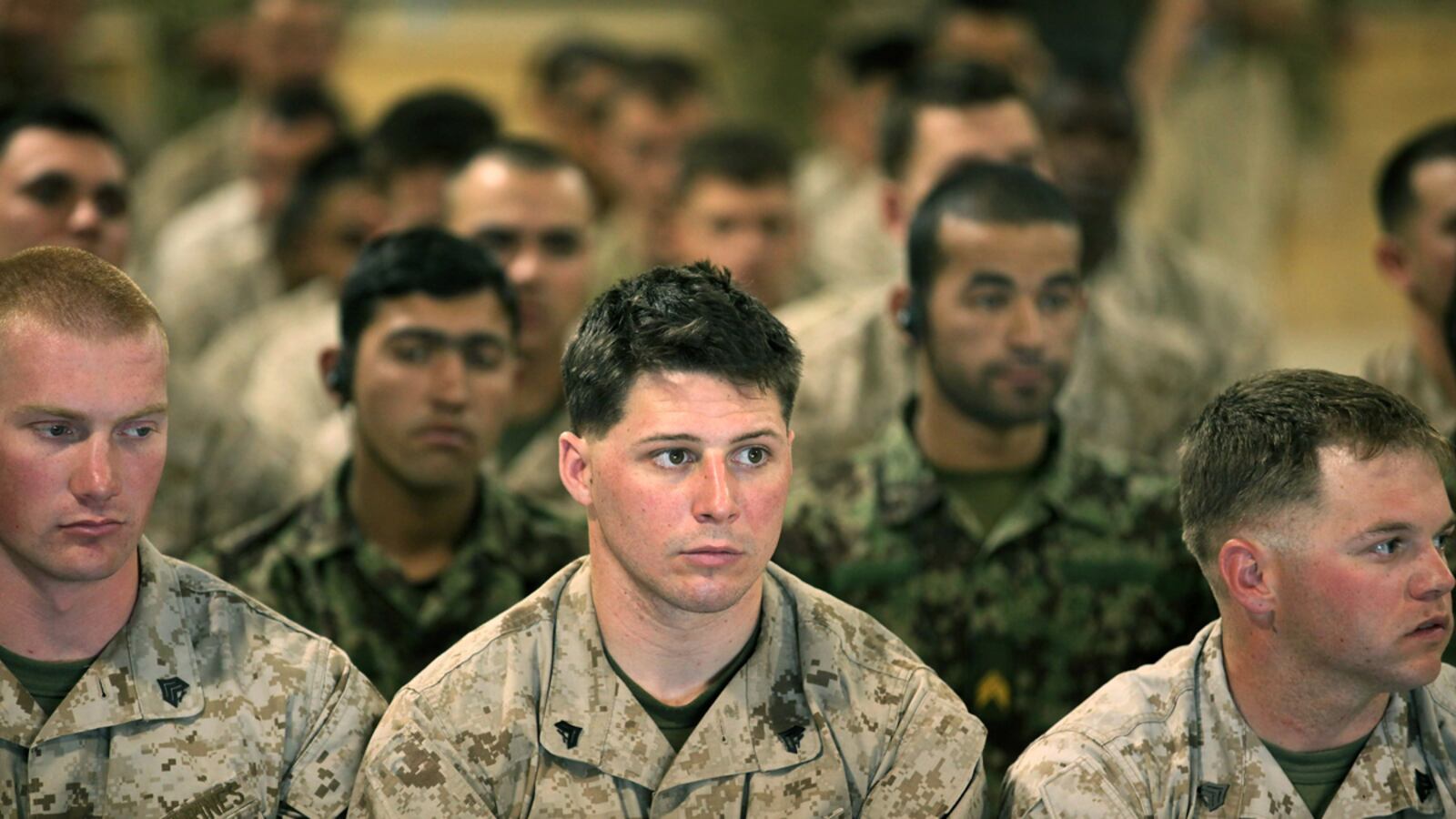The staff sergeant suspected of killing 16 Afghan civilians, Robert Bales, will surely be held accountable both as an individual and an American soldier. He will be tried and, if convicted, Defense Secretary Leon Panetta has said the death penalty is a possibility. But it’s too simple to blame Bales alone. His actions are the toll of more than a decade of fighting wars with Other People’s Kids.
Bales was serving in Afghanistan on his fourth combat tour, in a sense filling in for three other Americans missing from military service, AWOL in the country that once produced "the Greatest Generation." After 9/11, we never asked the American people for blood, sweat, and sacrifice, but instead sent them back to their usual lives. Instead, America fought the war against terror in Iraq, Afghanistan, and lesser-known hellholes with OPK, a term I coined in my 2006 book, Warheads.
The armed forces were downsized when the Cold War ended, with the active-duty army shrinking by more than a third, or a quarter-million soldiers in just five years as President George W. Bush pledged that a smaller army of less than half a million soldiers would be able to hold the fort until the nation mobilized to meet any future emergency. But when the U.S. went to war after 2001, that pledge was simply forgotten, leaving a force small enough that many of its members undergo multiple deployments as our wars have dragged on for more than a decade.
Reading the memoirs of George H.W. Bush, Dick Cheney, Condoleezza Rice, and Donald Rumsfeld, there seems to have been no thought given to mobilizing the country or sharing the burden of national sacrifice. Instead, the administration banked on the mostly less-than-upwardly-mobile soldiers already in uniform, including people like Bales.

The result has been a vast and still-growing divide between American society and the soldiers sworn to defend it with their lives. Warheads began by pointing out that Americans are more likely to know a resident of North Dakota, our least populous state, than an active-duty soldier in the U.S. Army. After a decade of continuous war, only 1 percent of our citizens have ever served in uniform. It is as if the Federalist Papers and the concept of the citizen-soldier had been erased from our collective memory. While citizens here focus on the wars’ wind-downs or pay them no mind at all, hundreds of thousands of our soldiers are still serving in those wars.
Bales found himself on his fourth combat tour, this time in Afghanistan, which one Allied commander recently likened to a walk through the Old Testament. But the more common metaphor is to Vietnam, which may still have some relevant lessons.
James Johnson, a Vietnam veteran whose 2010 book Combat Trauma recounted his long battle with post-traumatic stress disorder, described PTSD as “a combat wound to the soul.” Johnson’s courageous 30-year struggle was broadened by the testimony of 15 other Vietnam veterans whose 78 combat decorations included two Silver Stars and 16 Presidential Unit Citations. Their deeply troubling conclusion: unlike athletic training, resistance to trauma is not improved through conditioning. “The greater the exposure to traumatic events, the greater the likelihood that psychological injury will occur.”
PTSD is like radiation, the risk increasing in direct proportion to exposure. The typical service member in Vietnam spent a single tour there; these days we routinely demand that our soldiers risk their bodies and brains three or four times. Those odds eventually catch up. In July 2010, just before Johnson’s book appeared, the army lost more soldiers to suicide than it did to the Taliban.
While the active-duty army continues to struggle with suicide and divorce rates, the president’s new budget means that 100,000 soldiers and Marines will return home to pink slips as the force is downsized yet again. Meanwhile there is the looming prospect of war with Iran, even though Gen. James Mattis, commander of our Persian Gulf forces and a Marine’s Marine, recently ran a war game that underlined the unpredictable consequences of such a conflict. In Texas, we are understandably more concerned with the decimations and decapitations of Mexico’s narco-cidal war, now reaching both sides of an unmistakably embattled border.
All of which makes me wonder where our future soldiers will come from, and if we still deserve the freedoms that most seem to take for granted. None of the frontrunners on either side of the current presidential sweepstakes have spent much time publicly discussing these issues, and most members of the media know even less than the candidates. Remember to pray for Bales and his victims. But if you also remember to thank me or one of my colleagues for serving, then don’t be surprised if you only receive a polite but tight-jawed acknowledgment.






